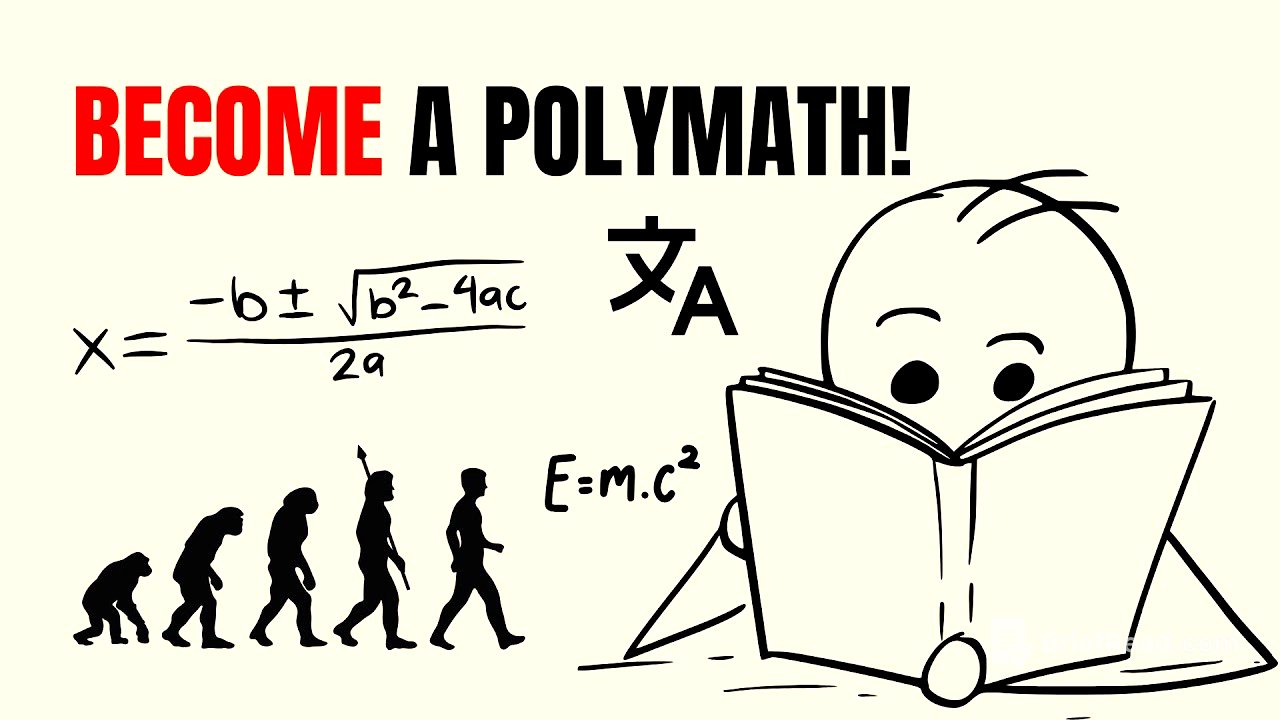TLDR;
This video explains how anyone can become a polymath by adopting specific learning strategies used by historical figures. It emphasizes the importance of making learning rewarding through dopamine hacks, combining different fields of knowledge, cultivating curiosity, using fast-track learning methods, stacking skills, focusing on systems over talent, and teaching others to reinforce understanding.
- Use dopamine to make learning addictive.
- Combine different fields of knowledge.
- Cultivate curiosity.
- Use fast-track learning methods.
- Stack skills to create a unique advantage.
- Focus on systems over talent.
- Teach others to reinforce understanding.
Dopamine Learning Hack [0:24]
The key to staying motivated in learning lies in dopamine, the brain's reward chemical. To make learning more appealing, implement small, immediate rewards for progress, such as marking off a progress tracker or celebrating small victories. Turning learning into a challenge, like setting a 7-day mastery goal, can also keep the brain engaged and motivated. The goal is to make progress visible and learning addictive.
Cross-Training Effect [1:12]
Polymaths enhance their learning by combining skills from different fields, leading to exponential growth through interdisciplinary learning. When learning a new skill, pair it with something seemingly unrelated to create unexpected connections and insights. For example, improve public speaking by studying storytelling techniques, business, or psychology. The more unrelated the subjects, the more effective this method becomes.
Curiosity Formula [1:43]
Inspired by Leonardo da Vinci, cultivate curiosity by questioning everything and keeping a polymath notebook. Whenever you're curious about something, write it down and research the answers. Curiosity is like a muscle that grows stronger with use, leading to increased intelligence.
Fast-Track Learning Formula [2:11]
Polymaths use a systematic approach to quickly master skills. This involves deconstructing the skill into smaller parts, selecting the most useful parts to learn first (following the 80/20 rule), immersing oneself in the subject through experts, books, and real-world practice, and immediately testing and applying the information. For example, when learning Spanish, start with the 100 most common words and begin speaking from day one.
Skill Stacking Cheat Code [2:53]
Instead of striving to be the best in a single area, polymaths combine multiple skills to create a unique advantage. Layering knowledge from two or three skills that complement each other can provide an edge. For instance, combining writing, psychology, and marketing can make you a more effective communicator.
Focus on Systems [3:19]
Polymaths prioritize building systems over relying on motivation. Establish a daily microlearning habit, such as 20 minutes per day, to compound learning over time. Automate learning by listening to audiobooks or watching educational videos daily, and schedule weekly challenges to apply what you've learned. Consistent efforts are more effective than sporadic motivation.
Teach to Learn [3:46]
Teaching is a powerful tool for accelerating learning. Explaining something to someone else forces your brain to deeply understand the subject. After learning something new, summarize it in your own words or teach it to someone else. If you struggle to explain it simply, refine your understanding and go back to the source material.









